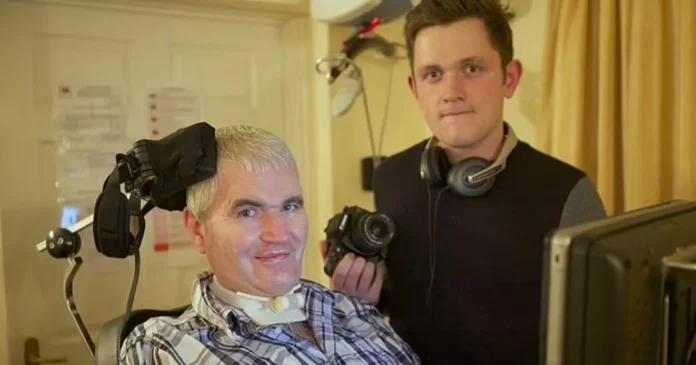Residents of a small Alpine village in France have long feared something in their environment was killing them – and now scientists believe a rare mushroom may be to blame.
Montchavin, a ski resort in the French Alps with a population of around 200, has seen an alarming cluster of motor neurone disease (MND) over the past three decades. Between 1991 and 2019, 16 residents – almost one in ten – were diagnosed with the fatal neurodegenerative condition, making Montchavin locals up to twenty times more likely to contract MND than the European average. Residents initially feared the horror disease was the result of potential contamination from a disused mine or mobile phone masts. But by 2019, after a decade-long investigation, researchers idenitified a possible culprit: a toxic mushroom commonly foraged and considered a delicacy in the area.
False morels contain toxins that have been linked to neurodegenerative conditions. Although considered edible in some traditions when carefully prepared, scientists now suspect long-term exposure to the fungi could be linked to Montchavin’s worrying MND cluster, MailOnline reports. Dr Emmeline Lagrange, a neurologist at Grenoble Alpes Univeristy Hospital, led government-backed research into the unusual spike in cases. Her team tested everything – from the village’s water supply, to building materials, artificial snow and even dietary habits – but no other explanation could be found.
One Montchavin resident with MND is British man Steve Isaac, 66, who moved to the French Alps with his family in 2007. He was diagnosed with the disease in 2009, but like late scientist Stephen Hawking, who defied medical science and lived with MND for 55 years, Steve remains the only surviving patient from the cluster, despite being fully paralysed except for in his eyes. Using eye-tracking software to communicate, Steve told MailOnline: “To my knowledge I’ve never had false morel mushrooms. And I don’t know why so many people got the disease in the area. Perhaps it’s just a random anomaly.”
The investigation began in 2010 after local GP Dr Valerie Foucault flagged concerns. “I looked at the records and thought, ‘this is just not possible’,” she said. “I called other GPs in the valley but I was the only one with these cases.” After being initially dismissed by health authorities, her concerns led to a full-scale scientific probe. Over the years, residents filled out extensive questionnaires about their lifestyle and diet, and multiple environmental sources were tested. Genetic links were ruled out when it emerged that none of the victims had a family history of MND.
The breakthrough came in 2017, when American neurologist Dr Peter Spencer – whose niece still lives in Montchavin – suggested the false morel mushroom could be the common link among those affected. While the villagers were initially sceptical, many have since stopped eating the mushroom. Notably, there have been no new diagnoses of MND in Montchavin in the past six years.
Still, some locals remain unconvinced. “I used to eat them every spring for at least 20 years,” said 76-year-old resident Mireille Marchand. “I’m not convinced they are the cause of the disease. I think it remains a mystery.” Though she no longer eats false morels, she continues to forage for other wild mushrooms.
Scientists have been careful not to draw firm conclusions, despite the suspected connection. “Correlation does not always mean causation,” said Dr Spencer. The first cases of MND in the village emerged shortly after the Montchavin coal mines were declared permanently closed in 1995. Whether the answer lies underground or in the forest floor remains a mystery.
At Reach and across our entities we and our partners use information collected through cookies and other identifiers from your device to improve experience on our site, analyse how it is used and to show personalised advertising. You can opt out of the sale or sharing of your data, at any time clicking the “Do Not Sell or Share my Data” button at the bottom of the webpage. Please note that your preferences are browser specific. Use of our website and any of our services represents your acceptance of the use of cookies and consent to the practices described in our Privacy Notice and Cookie Notice.

